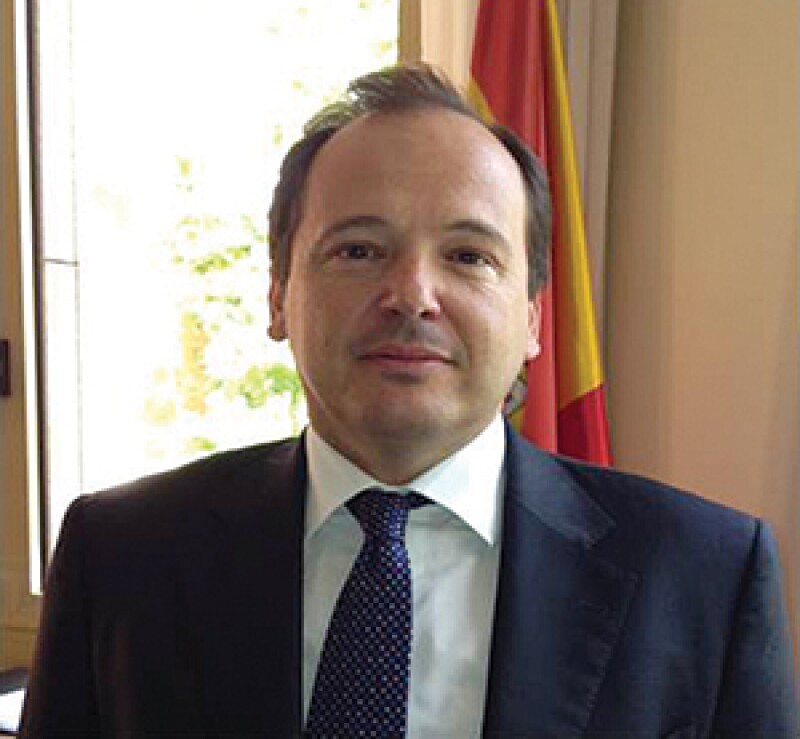
|
Rufino de la Rosa is a new entry this year |
Spain became a pioneer in tax administration in 2017 by introducing the world's first near real-time reporting system for VAT on July 1.
The Suministro Inmediato de Información (SII), or 'immediate information supply' regulations, are mandatory for all businesses that file monthly VAT returns in Spain. The rules apply to large entrepreneurs who have a turnover of €6 million ($7.1 million) or greater, companies that use the REDEME monthly VAT refund scheme (although these companies get a six-month grace period for the SII), and companies that are part of VAT groups in Spain. Companies that are not obliged to take part can do so voluntarily.
Companies have to submit the required data in XML format through a portal on the tax authorities' website, and in the future the authorities are considering setting up a server to automate this procedure.
Not only is this the first system of its kind, but Spain has been largely without a government for the past few years. This makes getting SII through Parliament and implementing it an even greater achievement.
"It was very difficult, that's true," de la Rosa tells International Tax Review. "We went through two different elections, and when we started the project more than three years ago we reached the draft, the very final step, an election was called and we were out of the game in that moment."
The regulations were announced for the first time in 2014, but the project to introduce them was suspended due to political uncertainty.
"In that moment we didn't know if the next government would go on with the project or not," says de la Rosa. "We had these next elections, then there were a lot of problems, a government wasn't formed [as no party had a majority and they couldn't agree on a coalition] so we had to wait for another election."
When opportunity arose to revive SII, in December 2016, Rufino's department moved quickly and SII was realised in a short timeframe, entering into force barely six months later.
His department had never abandoned the project, he explains, but put it on ice. When it was first shelved, it was fully completed and ready for government approval.
Of course, the changes brought about countless issues for businesses, as most had to transform the way they deal with tax, but also the accounting practices as a whole and their fiscal processes generally.
"At the beginning they were… I was trying to find another word, but 'shocked' could work. Perhaps something a little less strong," says de la Rosa. "But after the dialogue with the tax administration and after they started to work on their processes, they liked it a bit more. Of course, a legal obligation is a legal obligation. It's not something anyone chooses to apply, but they see the necessity to make these kinds of changes."
To ease the transition, the Department of Tax Management has reduced the regularity with which companies have to file from every four days to every eight days for the first year following the changes. Additionally, companies in some regions will not have to comply until 2018, and there are no plans to extend the SII to small and medium-sized companies.
He feels that, given time, the changes will be beneficial to companies, and his department made sure that businesses were involved in developing the changes.
"Of course, we are a tax administration. We need to check the compliance," says de la Rosa. "But, having this information is not only a measure to help our tax teams, it's a way for taxpayers to know that we do know a lot of them, and to enhance voluntary compliance."
"I think in the end the SII really will help businesses," he adds. "It's going to be a big effort, perhaps make investment in some companies, but is a one-off investment. Once you have put in practice this way of taking the information and sending the information to us, [the only effort is] to keep it in practice. It helps also because we check this information to be sure it is correct. That helps us to be quicker in the tax returns."
De la Rosa feels that the SII is a change in the way the tax administration communicates with companies towards a more cooperative relationship.
"I think it's part of the future," he says. "The future is having information. Taxation management is still thinking in old accounting books, in the paper world, and we must move into information technology."
The Global Tax 50 2017 |
|
|---|---|
The top 10 • Ranked in order of influence |
|
6. Arun Jaitley |
|
The remaining 40 • In alphabetic order |
|
| The Estonian presidency of the Council of the European Union |
|
| International Consortium of Investigative Journalists (ICIJ) |
|
| United Nations Committee of Experts on International Cooperation in Tax Matters |
|









